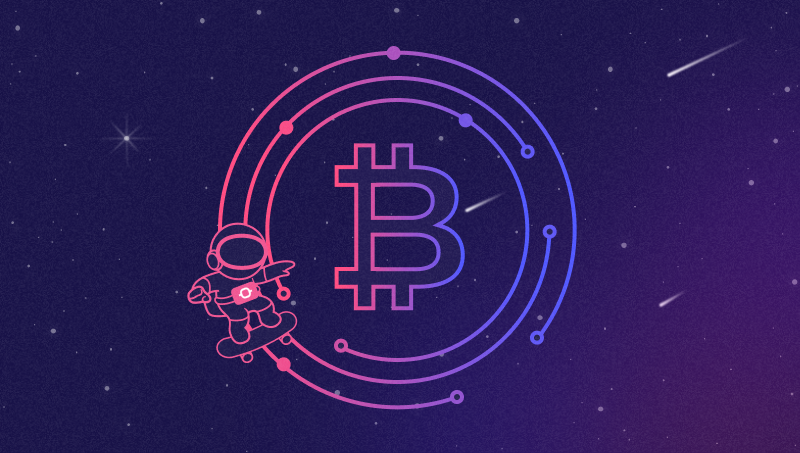These are exciting times for Bitcoin and all other cryptocurrencies. Beyond the price momentum, one cannot ignore the dwindling Bitcoin dominance as other networks gain traction. However, decentralized finance (DeFi) on Bitcoin is increasing, indicating that a momentum shift is possible. DeFi uses blockchain technology to provide users with access to financial services without the need for intermediaries.
Bitcoin’s dominance continues to dwindle
Numerous intriguing cryptocurrency metrics can be used to assess the health of the industry. While no one disputes that Bitcoin is the most valuable cryptocurrency by market capitalization, its dominance has waned. In fact, it has been well below 50% for several months and shows no signs of increasing. Current market conditions are not helping this situation, though they have contributed to a small amount of momentum for the Bitcoin Dominance metric.
Although this metric does not tell the entire story, it does confirm that Bitcoin has begun to lag behind the world’s Solanas, Cardanos, and Fantoms. All of these alternative networks provide access to opportunities for decentralized finance (DeFi). However, Bitcoin has not had such opportunities in years and is only now beginning to make inroads into DeFi. Furthermore, Ethereum, the dominant blockchain for smart contracts and DeFi activities, should not be overlooked.
By default, Bitcoin does not support smart contract functionality. The core network, in particular, does not support it, but networks linked to Bitcoin, such as Rootstock (RSK) and Stacks, have brought smart contract functionality to Bitcoin. Rootstock is a Bitcoin sidechain that functions as a smart contract network, enabling decentralized applications, near-instant payments, and increased scalability while retaining Bitcoin’s security.
This is also why DeFi on Bitcoin has become popular, as smart contracts eliminate the need for centralized entities to manage user funds.
DeFi on Bitcoin is gaining traction
The landscape is becoming much more competitive as the growth of DeFi on Bitcoin continues unabated. There is no shortage of options, whether through Layer-2 and Layer-3 solutions like Portal or native projects like DeFiChain. Portal is a new Layer 2 wallet and DEX on the Bitcoin network that is self-hosted. It is constructing DeFi on top of the Bitcoin blockchain in order to provide a wide range of DeFi services such as asset issuance, swaps, staking, and more while maintaining anonymity within open, transparent markets.
DeFiChain, on the other hand, is a Bitcoin hard fork that allows users to access DeFi services while retaining Bitcoin’s security and provenance. Custom transactions enable the implementation of more advanced DeFi applications.
Exciting opportunities are on the horizon as Bitcoin gains traction in decentralized finance. This effort, however, will only be successful if the DeFi platforms that incorporate bitcoin – either the network or the currency – is secure and long-lasting. DeFiChain, a community-driven DeFi venture, will most likely continue to dominate in this regard by leveraging the Bitcoin network’s security.
DeFiChain goes above and beyond other solutions by offering dAssets on Bitcoin. Decentralized Assets, such as dTSLA, are cryptocurrencies that can be created by anyone on the DeFiChain blockchain. They provide price exposure to actual assets such as stocks rather than ownership without leaving the DeFi ecosystem. Because the price of dTokens is determined by supply and demand, it may not fully replicate the price of the underlying stock. However, DeFiChain recently implemented the Fort Canning Road hard fork to ensure that dToken prices stay within a +/-5 percent range.
A Promising Future
Whether using Rootstock, Stacks, DeFiChain, Portal, or other solutions, DeFi on Bitcoin has a promising future. Developers can create an increasing number of applications, products, and services. Bitcoin remains the most popular cryptocurrency and the preferred investment option for both individuals and institutions.
Long-term Bitcoin holders can tap into passive revenue streams and put their money to work as DeFi on Bitcoin grows and diversifies. More importantly, they will do so while benefiting from the world’s most secure blockchain.
Source link




